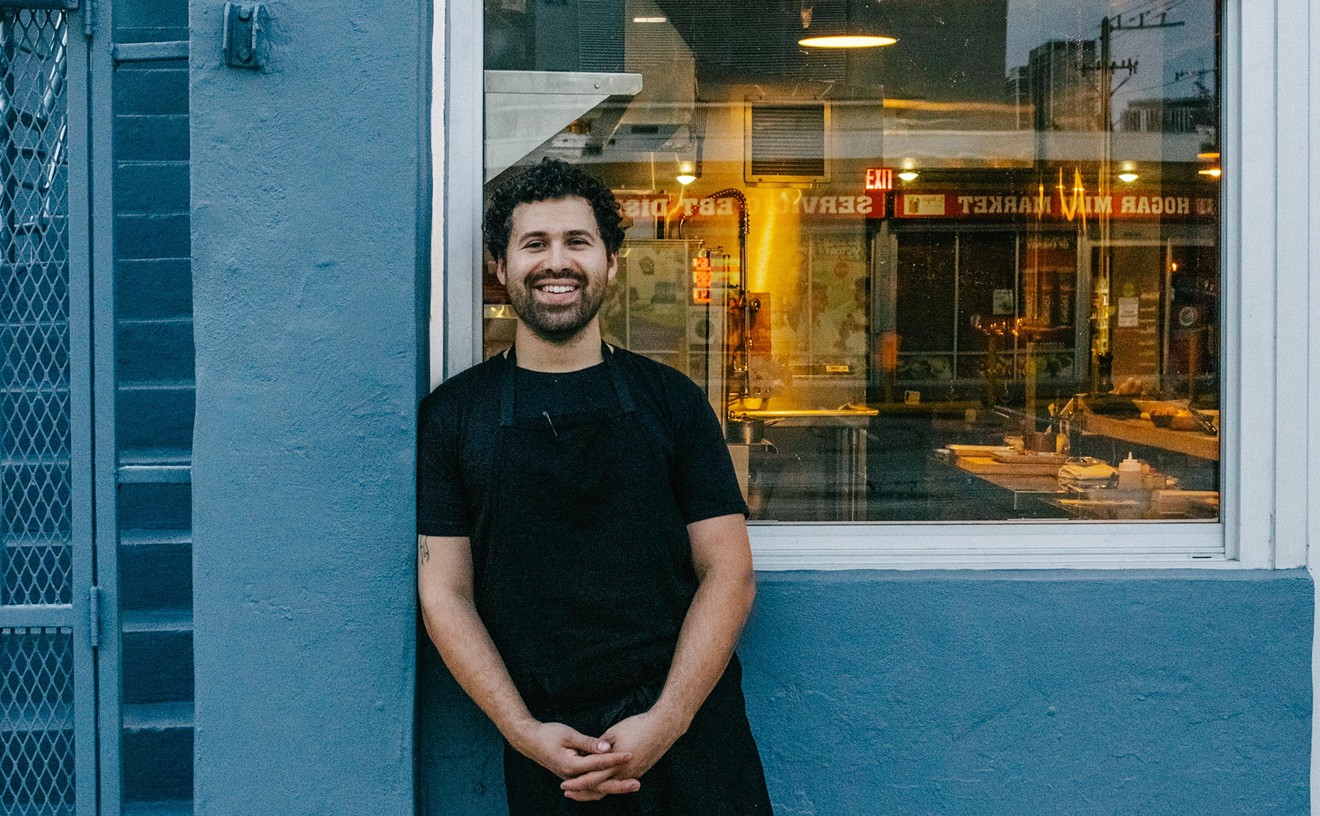Brothers Assaf and Tal Hadad missed the food from home. Born in Hadera, Israel, a 40-minute car ride north of Tel Aviv, they moved to Ariel, a settlement in the occupied West Bank, when Assaf was 12. There they grew up surrounded by a rainbow of cuisines.
"Ever since I could remember, I would stand on a little stool watching my mother and grandmother cook," Assaf says. "My grandmother is Moroccan and my mother is Persian, so we grew up with incredible ingredients and dishes."
Assaf was exposed to a whole universe of spices and flavors easily distinguishable from the mostly beige Ashkenazi cuisine — stuffed cabbage, chopped liver, and pickled herring — that often defines Jewish food. In recent years, the profile of Israeli food has risen thanks to the likes of London's Yotam Ottolenghi, Philadelphia's Michael Solomonov, New York City spice wizard Lior Lev Sercarz, and cookbook author Adeena Sussman.
Locally, some of that technicolor diversity is available at Assaf and Tal's café, Hadekel 1, for which they partnered with Asaf Ely, who worked for the iconic Israeli chef Meir Adoni, and named for the address where they lived in Ariel. It's especially best at their recently launched brunch, which for a mere $30 brings a crusty, puffy Jerusalem bagel sprinkled with za'atar alongside a changing lineup of five to six tapas and a shot of the anise-flavored Lebanese liqueur arak.
"If there's something that is missing over here, especially in the kosher world, it's the vibe," Assaf says. "We wanted more than just a restaurant to eat and go home; we wanted a place to enjoy, to hang out, to meet new people, and that’s what we’re trying to create."
On a recent Sunday, the offerings included a roasted sweet potato covered in a cascade of yogurt; a smoky eggplant tartare with dried rose petals, pistachio feta, and tahini; pickled carrots and cauliflower; and the almond paste called skordalia topped with a Moroccan pepper salad, black olives, and tzatziki.
Throughout the rest of the week, the restaurant's selection includes sandwiches such as the kuku sabzi ($12), an herbed omelet topped with tahini, sliced tomato, and red onion on Zak the Baker sourdough. The highlight, however, is the sabich boureka ($11): The traditional Iraqi dish of eggplant, hardboiled egg, tomato-cucumber salad, tahini, and the pickled green mango condiment called amba is piled onto the same puff pastry used to make the savory cheese- or potato-filled pastries called bourekas.
The holy kubaneh ($14) is another can't-miss. This rich Yemenite pull-apart bread — think of the love child of a savory monkey bread and challah — is topped with beet-cured salmon, tomato butter sauce, salted spinach, and two poached eggs to create what Assaf calls the "perfect Israeli-Mediterranean eggs Benedict."
Such a place almost didn't exist. When Assaf moved to Miami about a dozen years ago, he was in sales, but at the urging of his then-girlfriend, now-wife Maya, he attended culinary school and eventually became the opening chef for Fuego, a high-end kosher steakhouse in Miami Beach.
After seven years, he knew he wanted to cook the flavors of his youth and took the risk to go out on his own — first opening Hadekel 1's neighboring Foozo Pizza.
"I did this to follow my own path," Assaf says. "I wanted to bring people the food from my house, all of those Persian and Moroccan flavors I grew up with."
Hadekel 1. 2500 NE 186th St., Miami; hadekel1.com.
[
{
"name": "Air - MediumRectangle - Inline Content - Mobile Display Size",
"component": "19274298",
"insertPoint": "2",
"requiredCountToDisplay": "2"
},{
"name": "Editor Picks",
"component": "17482312",
"insertPoint": "4",
"requiredCountToDisplay": "1"
},{
"name": "Inline Links",
"component": "18711090",
"insertPoint": "8th",
"startingPoint": 8,
"requiredCountToDisplay": "7",
"maxInsertions": 25
},{
"name": "Air - MediumRectangle - Combo - Inline Content",
"component": "17482310",
"insertPoint": "8th",
"startingPoint": 8,
"requiredCountToDisplay": "7",
"maxInsertions": 25
},{
"name": "Inline Links",
"component": "18711090",
"insertPoint": "8th",
"startingPoint": 12,
"requiredCountToDisplay": "11",
"maxInsertions": 25
},{
"name": "Air - Leaderboard Tower - Combo - Inline Content",
"component": "17482313",
"insertPoint": "8th",
"startingPoint": 12,
"requiredCountToDisplay": "11",
"maxInsertions": 25
}
]












